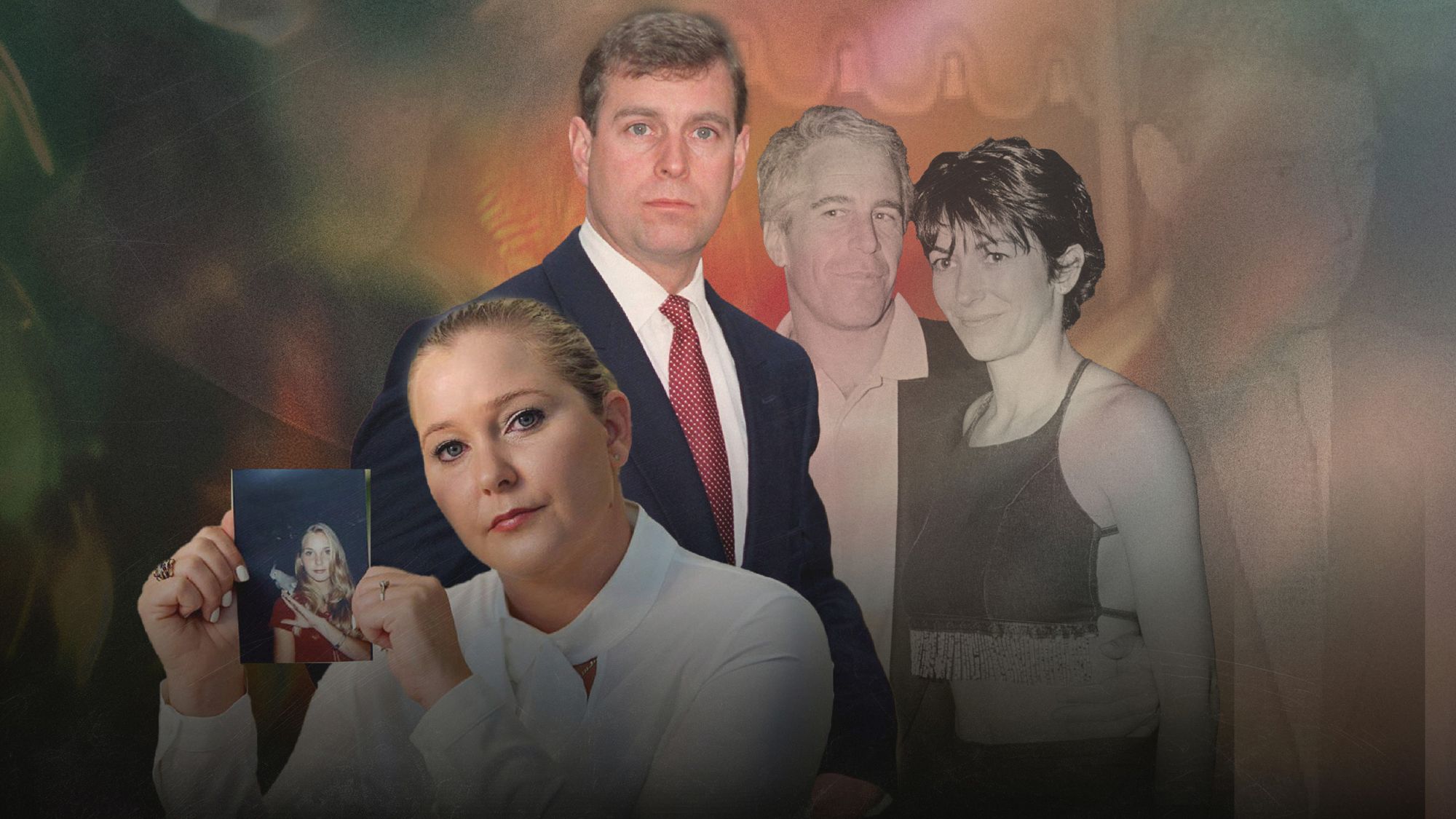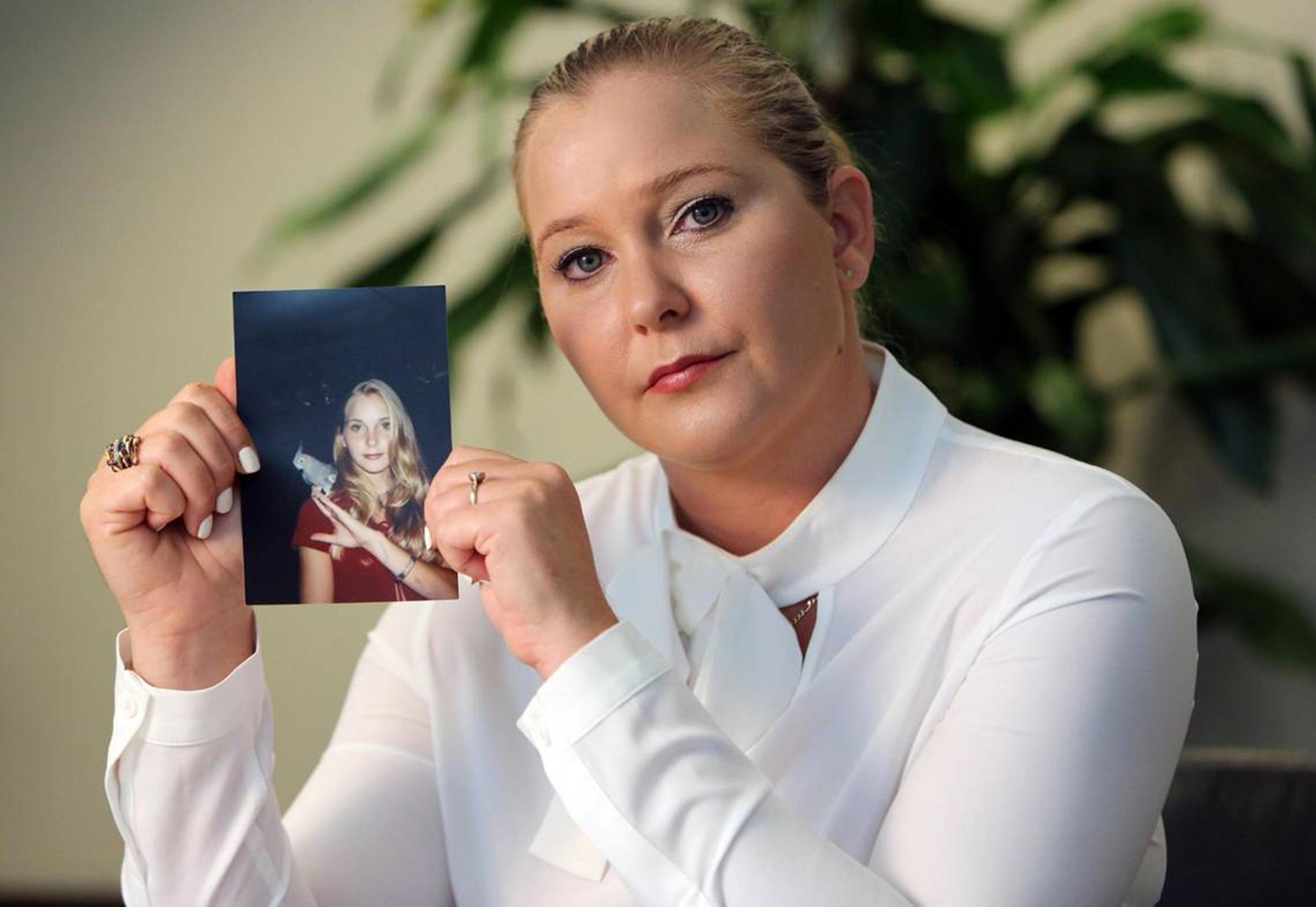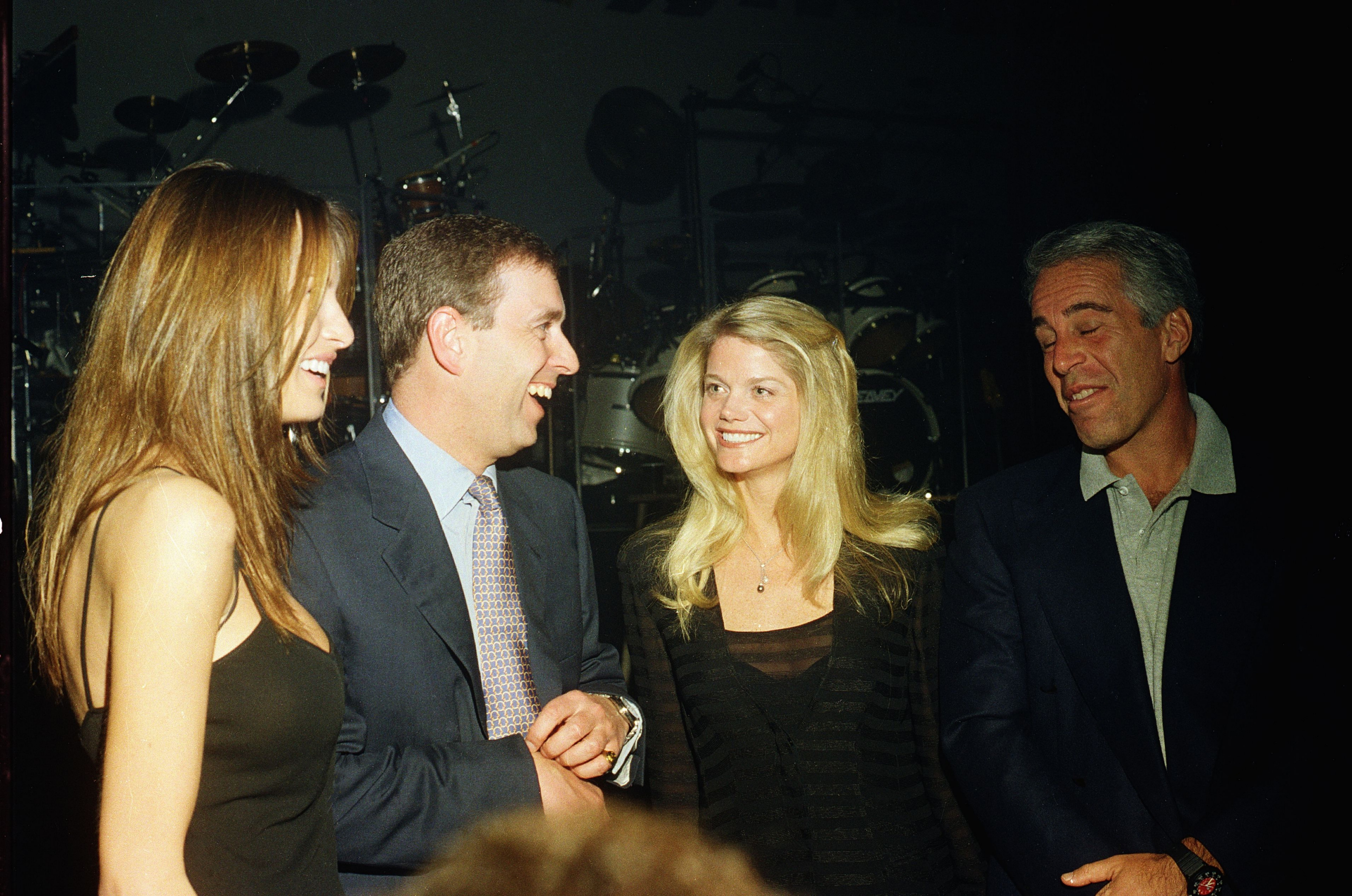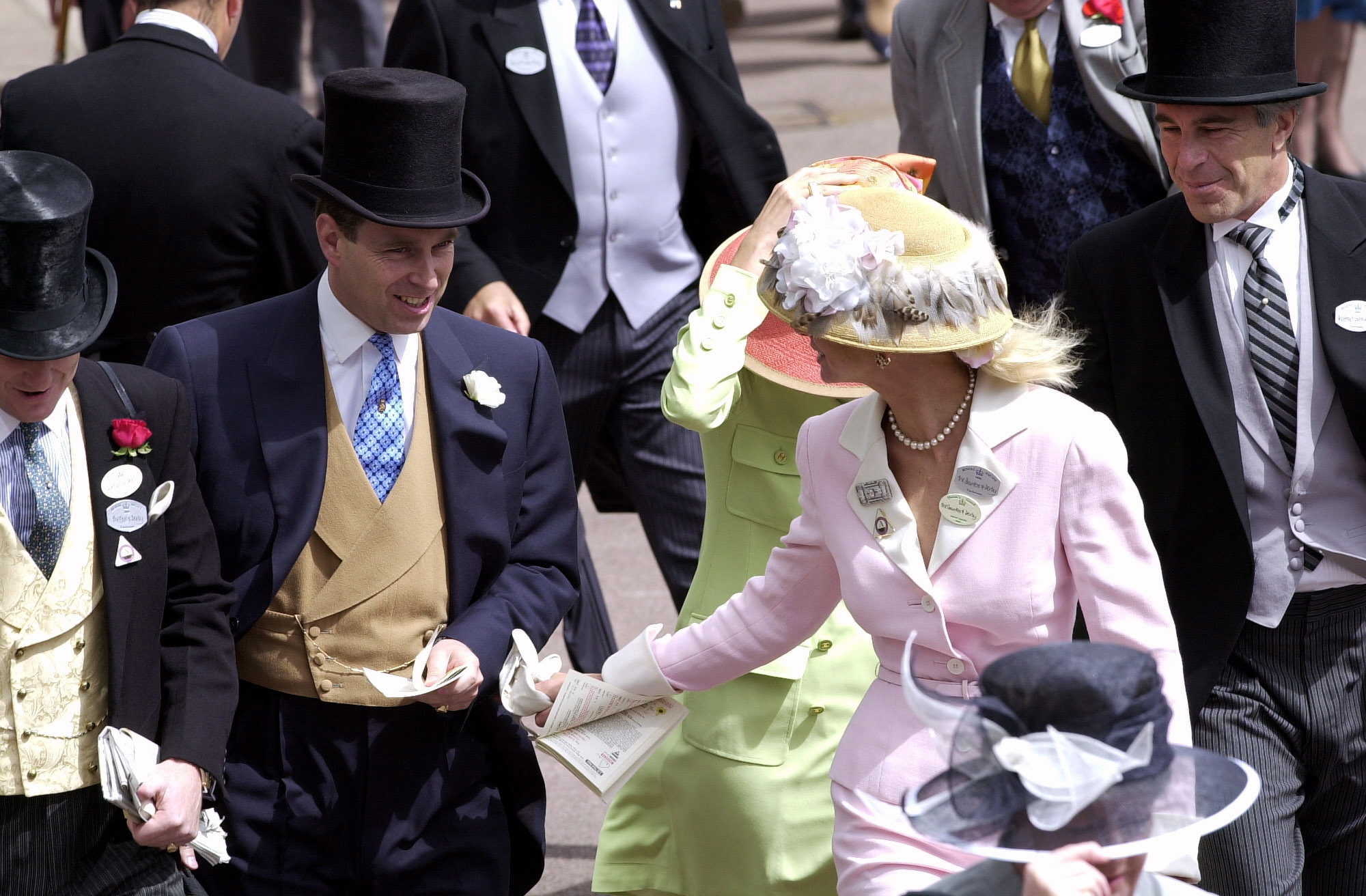Smearing Virginia Giuffre: What New Allegations Against Prince Andrew Reveal About Power and Silence
In her posthumous memoir, Nobody’s Girl, Virginia Giuffre details a lifetime of abuse—and the powerful efforts to silence her. Now, her final words are a reckoning the world can't ignore.


“In my years with them, they lent me out to scores of wealthy, powerful people,” writes Virginia Giuffre in her posthumous memoir, Nobody's Girl: A Memoir of Surviving Abuse and Fighting for Justice, released today. Key allegations had already entered the public domain over the last few days, and they make for harrowing reading. Among them: “Prince Andrew believed having sex with me was his birthright.” The memoir does more than catalogue a lifetime of alleged abuse—beginning at just age 6—it reflects the devastating toll of years spent fighting for justice and enduring public doubt and vilification. Giuffre, who took her own life in April of this year, had spent decades being treated not as a survivor, but as a problem to be managed or erased. Three weeks before her suicide, she wrote to Amy Wallace, her book’s ghostwriter, to say: “It is my heartfelt wish that this work be published, regardless of my circumstances at the time.”

Virginia Giuffre, with a photo of herself as a teen, when she says she was abused by Jeffrey Epstein, Ghislaine Maxwell and Prince Andrew, among others.
Now, in light of the book’s publication—and an explosive report by the Daily Mail alleging that Prince Andrew enlisted his taxpayer-funded Metropolitan Police bodyguard to investigate Virginia Giuffre, passing along her date of birth and even her U.S. Social Security number—serious questions need to be asked. Why do such tactics, aimed at discrediting women—and certainly not exclusive to Giuffre—continue to work so effectively?
The smear campaign claim is chilling, though perhaps not surprising. The alleged attempt to use state resources—paid for by taxpayers like you and me—to gather private information on a woman who accused a royal of sexual abuse is, if true, an abuse of power of the highest order. But more than that, it fits a longstanding pattern: when women speak out against powerful men, the response is often not accountability, but retaliation.
There is a lucrative industry in character assassination for hire
Dr. Emma L. Briant
Even after Jeffrey Epstein became a convicted sex offender in 2008, powerful men across finance, academia, media, and royalty continued to associate with him. They flew on his jet and dined at his homes. Sure, few publicly defended him, but fewer still said anything at all. Survivors, meanwhile, were painted as liars, opportunists, or forgettable collateral. When accusations resurfaced, the instinct was damage control.
As Dr. Emma L. Briant, an expert in propaganda and information warfare—whose research played a key role in exposing the Cambridge Analytica–Facebook data misuse scandal—puts it: “There is a lucrative industry in character assassination for hire that powerful and wealthy individuals and companies can deploy to dredge up dirt and minimise the damage of assault allegations by attacking the accuser's credibility with PR or online astroturfing of support.” That’s precisely why smear campaigns have remained such an effective tool: they work not only to discredit individuals but to protect networks of power.
For too long, discrediting a woman’s character has been one of the most reliable ways to neutralise her voice. When a woman makes accusations of sexual violence, the tactics are both ruthless and well-trodden. Question her motives. Expose her past. Frame her as unstable, promiscuous, vindictive, or a fantasist. A headline from the time—from the same paper now alleging “Andrew told Met to dig up dirt on Virginia Giuffre”—read: “Jeffrey Epstein Accuser Was Not a Sex Slave, but a Money-Hungry Sex Kitten, Her Former Friends Say.” In the court of public opinion, the faintest whiff of doubt is often enough to turn the tide—and powerful men know it.
Virginia Giuffre was subjected to all of this and more. Her courage in speaking out about her alleged abuse was met not just with legal threats and denials, but with an orchestrated effort to dismantle her credibility, the memoir claims. Sadly, Giuffre’s circumstances are faced by many women, and her experience reflects the deep-rooted issues women face when making public allegations of abuse.
Celebrity news, beauty, fashion advice, and fascinating features, delivered straight to your inbox!

Melania Trump, Prince Andrew, Gwendolyn Beck and Jeffrey Epstein at a party at Donald Trump's Mar-a-Lago club where Virginia Giuffre says she was first approached by Ghislaine Maxwell.
Why do these tactics still universally work? Because the cultural scaffolding that enables them remains firmly in place. In the media, when alleged assault involves someone in the public eye, it is treated as a scandal rather than potentially systemic abuse. Legal systems allow reputational management to masquerade as justice. And the public, conditioned by centuries of misogyny, remains more inclined to doubt the woman than to question the man.
As Dr. Jilly Kay, a feminist media scholar at Loughborough University, explains: “Contemporary culture is profoundly shaped by very long histories in which women’s voices have been discredited and disbelieved… False accusations are vanishingly rare, but these myths still have a very powerful hold over the ways that many people think about sexual assault.”
Smear campaigns are perhaps the oldest form of propaganda and one of the most effective
Professor Nicholas O'Shaughnessy
That historical context is crucial. As Nicholas O'Shaughnessy, Emeritus Professor of Communications at Queen Mary University of London, notes: “Smear campaigns are perhaps the oldest form of propaganda and one of the most effective… Even if denial is effective, there always remains a stain—people think there might be some grain of truth after all.”
He points out that women, in particular, are more often the targets of these enduring narratives—especially those that sexualise, discredit or morally stigmatise them: “Typically in history, certain women have been depicted as sexually voracious—the mythology of the nymphomaniac. Women can be vulnerable and yet still blamed.”
Worse still, these smears are not only personal attacks; they’re deterrents. They send a message: this is what will happen to you if you speak up. We saw it in the way it took literal video evidence of Cassie’s abuse at the hands of Sean “Diddy” Combs for her to be believed. We saw it when a 22-year-old Monica Lewinsky was vilified, while her 49-year-old boss, and the President of the United States, was painted as a hapless man who fell prey to temptation. It is, quite literally, a tale as old as time: Eve and the apple, and all that.

Prince Andrew, Ghislaine Maxwell, and Jeffrey Epstein (far right) At Ascot in 2000.
Professor Vian Bakir, an academic specialising in journalism and political communication, agrees: “Whether they silence the targeted woman is another matter, but they certainly could have a chilling effect on other women from taking public oppositional stances against men in power.”
“Smear campaigns can be incredibly sophisticated,” adds Isabella Theocharous, an Associate at Carter-Ruck, which specialises in reputation management, privacy law, and crisis response. Often, even when the victim knows who is behind the campaign, it is difficult to get a claim off the ground, explains Theocharous. There’s also the simple reality that smear campaigns, especially when backed by wealth and institutional influence, are unfair battles. Survivors rarely have access to the legal firepower, PR teams, or political protection afforded to their alleged abusers. The reputational damage done by even a whisper campaign can take years to undo, that’s if it’s undone at all. Dr. Briant warns of the infrastructure that supports such efforts: “The media feed on conflict and scandal… This encourages men to seed the public discrediting of women with disparaging information.”
And yet history is full of moments when women have spoken anyway, refusing to be silenced and shifting the culture in the process. Virginia Giuffre is one of those women. Her story has helped expose a global web of exploitation and the lengths to which the powerful will go to protect themselves.
Smear campaigns work because they exploit our worst instincts: to doubt the vulnerable and protect the powerful. The only way to break their power is to confront those instincts—with vigilance, solidarity, and an unwavering commitment to truth.

Mischa Anouk Smith is the News and Features Editor of Marie Claire UK.
From personal essays to purpose-driven stories, reported studies, and interviews with celebrities like Rosie Huntington-Whiteley and designers including Dries Van Noten, Mischa has been featured in publications such as Refinery29, Stylist and Dazed. Her work explores what it means to be a woman today and sits at the intersection of culture and style. In the spirit of eclecticism, she has also written about NFTs, mental health and the rise of AI bands.